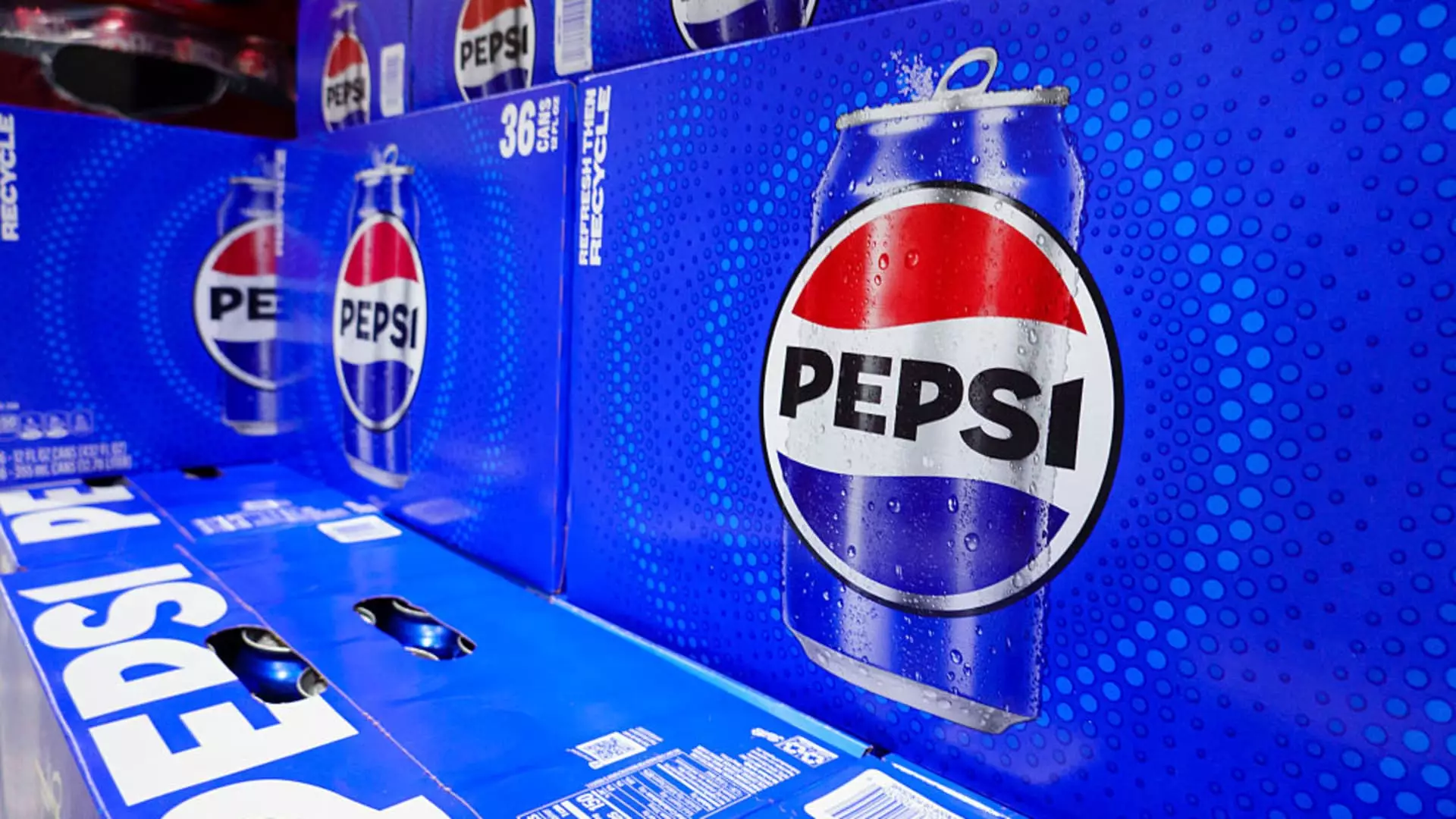PepsiCo’s latest earnings report offers a veneer of optimism, but beneath the surface, it reveals a company grappling with the harsh realities of a sluggish consumer landscape. While the numbers momentarily beat analysts’ expectations, the reality is much grimmer. The decline in reported net income—plummeting from over $3 billion to just over $1 billion—raises questions about the sustainability of Pepsi’s growth. It’s easy to celebrate a slight boost in revenue and a marginal uptick in organic sales, but these figures mask a deeper erosion in core demand. Consumer preferences are shifting, and Pepsi’s traditional reliance on sugary sodas and snack foods is becoming less viable in an increasingly health-conscious world.
This pattern of superficial performance underscores a deeper issue: Pepsi is still fighting an uphill battle to redefine itself in an era where health trends dominate purchasing decisions. The company’s efforts to rebrand as a “healthier” snack and beverage provider seem more like Band-Aids than a genuine repositioning. As volumes decline—particularly in North America—the question arises: how long can they chase fleeting growth before they hit a wall?
Strategic Shifts: A Weak Attempt at Reinvention
Pepsi’s announced plans to lean into healthier snacks and diversify its product lineup seem commendable in theory, but they come across as reactive rather than proactive. Aligning with trends like plant-based foods and multicultural offerings, such as Siete Foods and Sabra, offers some promise. Yet, this pivot raises skepticism about whether Pepsi truly understands the zeitgeist, or if it’s merely copying competitors who have been ahead of the curve. Relaunching core products like Lay’s and Tostitos to emphasize traditional ingredients feels more like a nostalgic retreat than a genuine innovation.
Furthermore, the company’s efforts to optimize logistics and reduce costs—closing plants and tightening supply chain efficiencies—demonstrate a classic approach: cutting costs to mask declining organic growth. While streamlining operations might temporarily boost margins, it raises questions about long-term capacity for innovation and adaptability. Cost-cutting can help maintain short-term profitability, but it does little to address the fundamental challenge of changing consumer tastes.
The Flawed Promise of a Rebound
CEO Ramon Laguarta’s assurance that North American demand will rebound seems more like wishful thinking than a grounded forecast. Yes, the recent performance hints at some improvement, but the overall demand remains fragile. The slight increase in volume for Pepsi Zero Sugar suggests that consumers are shifting toward low-calorie options, but the decline in core soda volumes and food sales reveal that even these efforts might not be enough to reverse the tide.
The company’s reliance on hype around healthier options and multicultural products feels like a strategic Band-Aid rather than a real solution. If Pepsi truly wants to stay relevant, it must critically examine whether these initiatives are enough or merely cosmetic. The reality is that consumer preferences are evolving faster than Pepsi’s innovation cycles. The company’s caution—highlighted by its conservative outlook and postponement of aggressive growth targets—reflects an understanding that their current trajectory might not sustain them in the coming years.
The Center-Left Dilemma: Navigating a Changing Society
From a center-wing liberal perspective, Pepsi’s challenge is emblematic of a broader societal shift: the need to adapt responsibly to changing values and demands. The focus should be on fostering genuine innovation that aligns with health and sustainability, rather than superficial rebranding or cost slashing. While the company is making some strides, its approach often feels reactive, aimed at placating investors rather than addressing the root causes of decline.
The company’s emphasis on better marketing ROI and product placement signals an awareness of the importance of strategic consumer engagement. However, without fundamentally reimagining its product portfolio—prioritizing health, environmental responsibility, and inclusivity—Pepsi risks alienating the very consumers it hopes to attract. It’s not enough to merely tweak marketing strategies; the company must embrace a holistic approach that recognizes social responsibility as integral to long-term profitability.
—
Pepsi’s latest quarter underscores a harsh reality: in an era of rapid societal change, superficial adjustments cannot substitute for authentic innovation. While the company projects a hopeful outlook, the signs suggest it remains caught between nostalgia and the necessity for real transformation. Only through courageous, genuine shifts—prioritizing health, sustainability, and consumer values—can Pepsi hope to regain its footing amid a deeply shifting cultural landscape.

